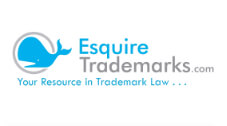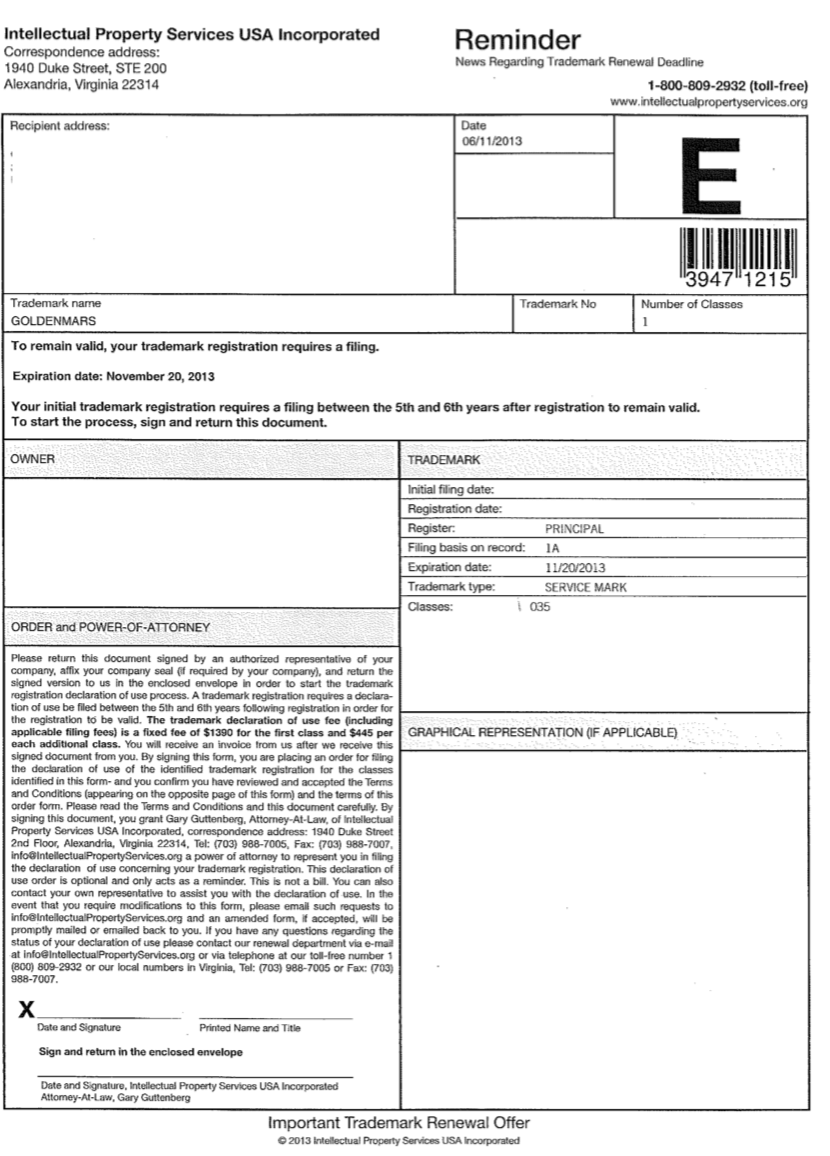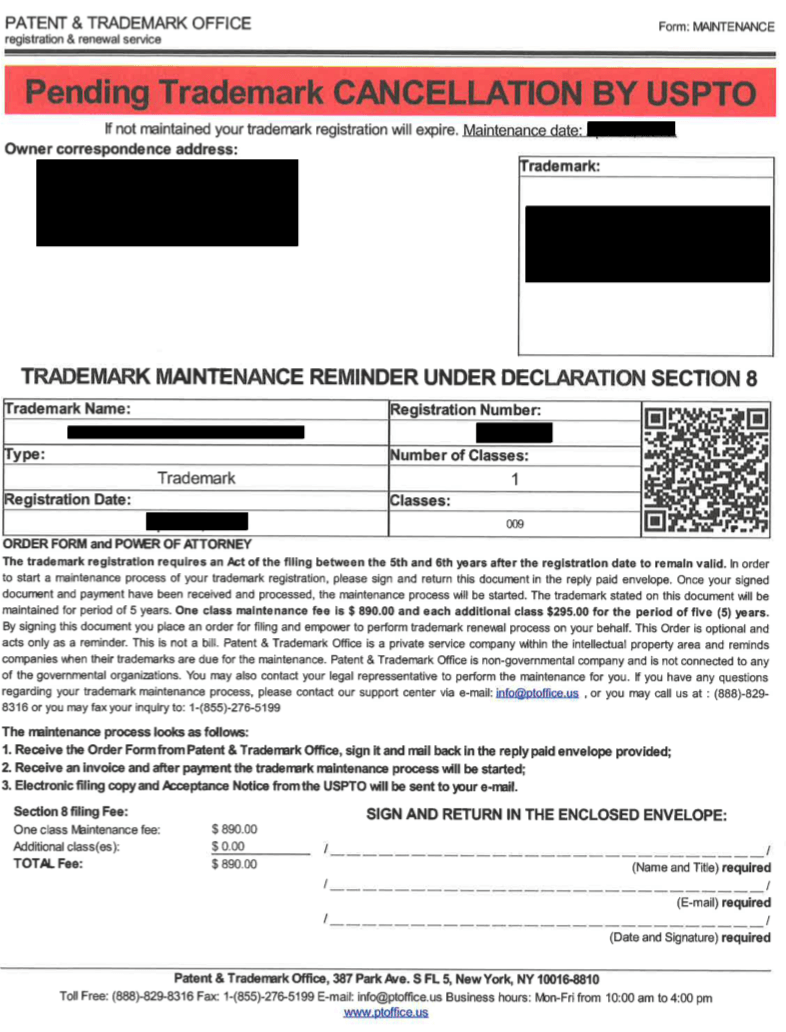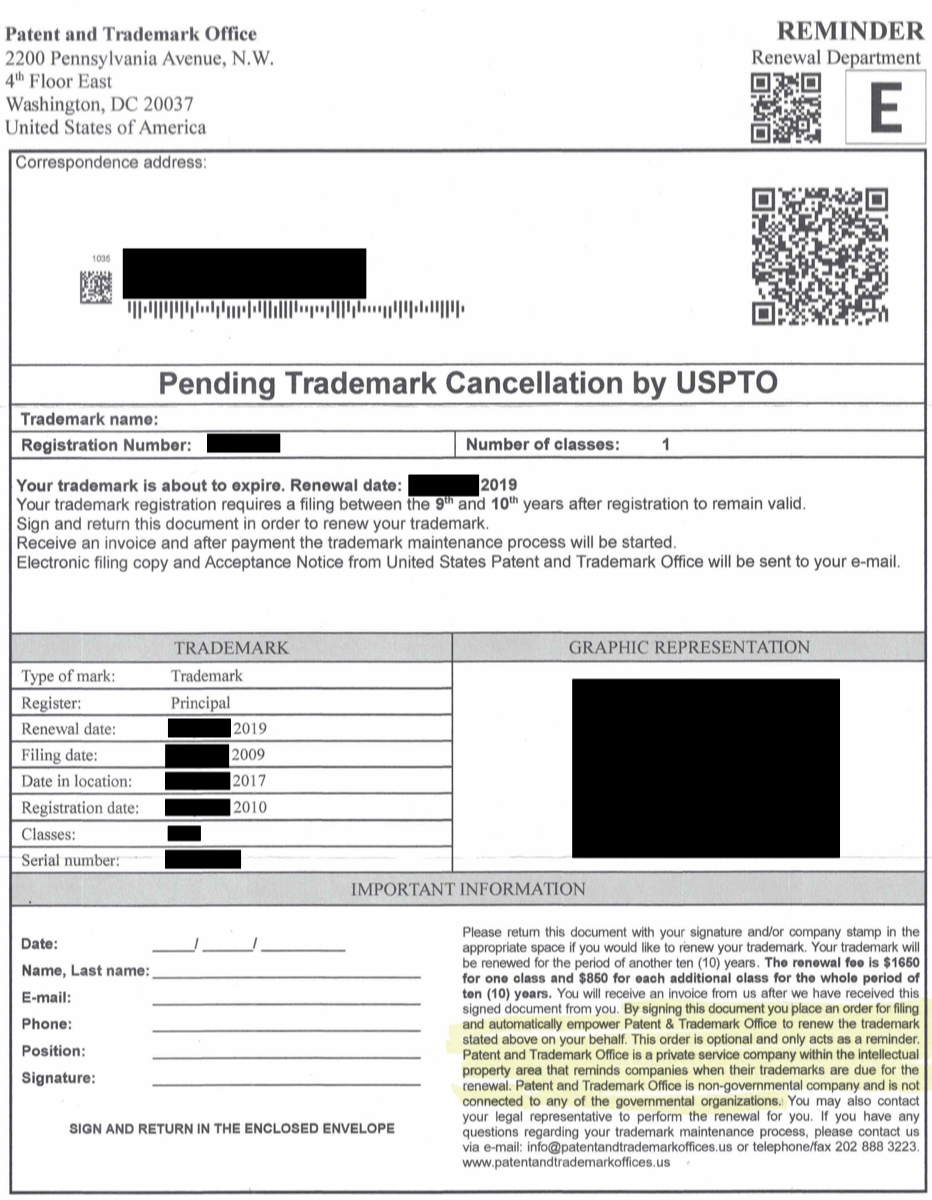Trademark Fraud Occurs Every Day Using Public Email Addresses
Criminal enterprises (spammers) use public trademark owner data to prey on trademark applicants and registrants. The Spammers collect public trademark information and use it to send Official Notices and Requests for Payment of fake renewal fees. Visit my Trademark Scam Information Page for detailed information about trademark scams. The Fraudulent Official Notices are sent using the public email and postal address provided in the trademark application forms.

We have had several sophisticated large businesses pay thousands of dollars to Fraud Criminal Enterprises, who sent Fake Official Notices. Trademark Fraud by Email!
USPTO’s Mandatory Owner Email Requirement:
Historically, providing applicant email information was optional. Most trademark practitioners left owner email blank to protect clients from the Criminal Privacy Phishing Fraud Scams that are occurring to unsuspecting trademark owners. As of February 15, 2020, the submission of an Applicant/Registrant email is now mandatory.
We Use a Dedicated Spam Email Address to Protect Clients from Phishing and Trademark Scams
The Trademark Office Regulations allow use of a generic dedicated email address for applicants who are represented by counsel to use any email address for the “trademark owner,” so long as it is different from the email address for the trademark owner’s attorney. Accordingly, we created a dedicated email for use in protecting clients from email Phishing, Trademark Scams, and Fraudulent Official Payment Notices.
All Official Notices Will Come From Your Trademark Attorney Charles Riddle via Riddle Patent Law, LLC or EsquireTrademarks.com
The USPTO Trademark office sends all correspondence to the Attorney of Record. All Official Notices Will Come From Your Trademark Attorney Charles Riddle via Riddle Patent Law, LLC or EsquireTrademarks.com
Continue Reading for More Information about Trademark Fraud Scams
Trademark office scams are often disguised as official notices from the United States Patent and Trademark Office (USPTO) requesting payment of fees and/or threatening trademark cancellation.
Fake notices will attempt to deceit by promoting a variety of services and warnings related to trademark maintenance:
- Legal Services
- Assisting with an upcoming filing deadline
- Pending trademark cancellation
- Responding to an office action
- Using a name that resembles “USPTO” in all correspondence
- International Registry Protection
Solicitations will include accurate information related to your trademark such as the filing date or registration number. Private companies are able to find this information through government data publicly available from USPTO records.
Examples of Trademark Scams
The USPTO Educates the Public to Help Identify Trademark Scams
The USPTO is a great resource for trademark applicants and registrants. Visit their article Caution: misleading notices for more information about identifying trademark-related solicitations, what to do when you receive them, and a list of common examples.



